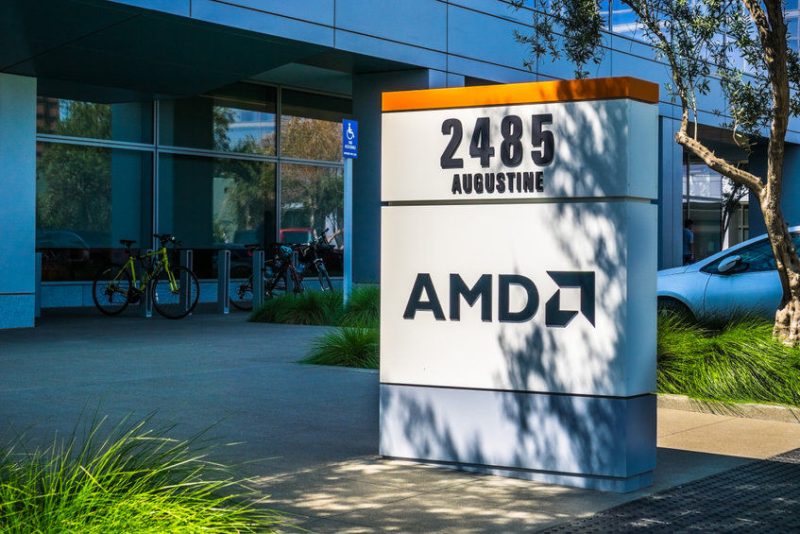AMD stock price has underperformed its top peers, especially NVIDIA, but technicals point to a potential rebound. It was trading at $137 on Friday, down by almost 40% from its highest level this year. In contrast, NVIDIA has more than doubled and become the biggest company in the world.
AMD stock price could rebound
Technicals point to a potential rebound of the AMD share price after months of weakness. The chart below shows that the stock has moved slightly below the 50% Fibonacci Retracement level, as we predicted in June.
The risk, however, is that the AMD share price has formed a death cross pattern as the 50-day and 200-day Exponential Moving Averages (EMA). In most periods, this is one of the riskiest patterns in the market.
On the positive side, the stock has formed an inverse head and shoulders chart pattern. In most periods, this is one of the most bullish chart patterns. It comprises a right and left shoulder and a head, which is around $120.
The other positive thing is based on the Elliot Wave pattern. On the daily chart, the stock has formed several waves of the Elliot Wave. The first wave ended at $133, while the second corrective ended at $93, the 78.6% retracement level.
The third wave, usually the longest, ended at the year-to-date high of $227. It has now completed the fourth wave, meaning that the stock could stage a strong comeback. If this happens, the next point to watch will be at $227, which is about 66% above the current level.
On the flip side, a move below the key support at $120 will invalidate the bullish view because it will cancel the inverse H&S pattern. If this happens, the next point to watch will be at $90, the 78.6% retracememt at $90.
AMD’s AI business is growing
The potential catalyst for the AMD share price is its artificial intelligence business, which has started growing in the past few quarters. This growth is mostly because the company has created GPUs that work almost the same way as those made by NVIDIA and are lower priced.
At the same time, there are concerns about the scarcity of NVIDIA’s chips. As such, whenever that happens, many customers move to the next logical alternative, which, in this case, is AMD.
The most recent results showed that AMD delivered a record data center revenue of $3.5 billion in the third quarter, a 122% increase from the same period last year. This growth was mostly because of its ramp up of AMD Instinct and AMD EPYC CPU sales.
Analysts believe that AMD’s market share could move from roughly 10% today to as high as 30% in the next few years as its demand rises.
The company’s client segment also continued doing well, with its sales jumping by 25% in the last quarter to $1.9 billion. As with the previous quarters, AMD’s gaming and embedded divisions continued to continued to weaken, dropping by 69% and 25%, respectively.
Valuation concerns remain
The other key challenge to have in mind is that AMD is highly overvalued compared to other companies. Data by SeekingAlpha shows that the company’s price-to-earnings ratio stood at 40.95, higher than the sector median of 25. Its price-to-sales ratio is 8.6, higher than the industry median of 4.
These are big numbers but can be justified because of its top-line revenue growth and its potential to become a key NVIDIA rival. Analysts expect AMD’s revenue will be $25.67 billion this year, up by 13% a year ago. The revenue growth will be 27% in 2025 to $32.61 billion.
There are signs that AMD’s business will do better than what analysts expect as it has done before. For example, the company’s earnings have beaten the consensus estimates in the last five consecutive quarters.
The risk, however, is that demand for AI chips may moderate in the coming years as the top purchasers lower their purchases. Besides, there are signs that demand for AI in the real world is not growing as was widely expected. Indeed, NVIDIA’s recent results confirmed that the industry was starting to cool.
The post AMD stock price forecast: Here’s why it could rebound soon appeared first on Invezz


